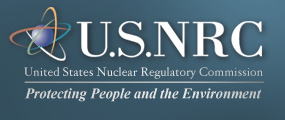Resolution of Generic Safety Issues: Issue 91: Main Crankshaft Failures in Transamerica Delaval Emergency Diesel Generators (Rev. 1) ( NUREG-0933, Main Report with Supplements 1–35 )
DESCRIPTION
Historical Background
On August 12, 1983, one of the three emergency diesel generators (EDG) at the Shoreham Plant failed during overload testing as a result of a fractured crankshaft. The failure occurred in EDG-102 and similar crankshaft cracks were discovered in EDG-103 and EDG-101 on August 22 and 23, 1983, respectively. In addition to the crankshaft cracks, 4 of 24 connecting rod bearings were found to contain cracks in the bearing shells. All 3 EDGs were supplied by Transamerica Delaval, Inc. (TDI) and were Model DSR-48 diesels.
On August 30, 1983, IE Information Notice No. 83-58780 was issued to inform licensees of the Shoreham event. Prior to this, IE Information Notice No. 83-51781 had been issued to inform licensees of various diesel-generator problems. The staff reviewed the operating status of the 3 plants with TDI engines and sent letters to all TDI diesel owners requesting specific information about their respective engines. A letter was also sent to TDI on December 1, 1983 requesting information on the design development history of various parts of TDI machines. A response from TDI was sent on December 16, 1983 and, on December 23, 1983, the staff was informed that a TDI Diesel Generator Owners' Group had been formed to address the problem.
As a result of the EDG failure at Shoreham, a TDI Project Group was established by NRR on January 16, 1984.782 On January 25, 1984, the staff provided the Commission with a status report in SECY-84-34.783 In order to more clearly define the issue and to determine remedial action, the staff issued a letter to TDI on February 14, 1984 requesting more information.784 In March 1984, the TDI Diesel Generators Owners' Group submitted to the NRC its program for addressing the issue.785 In April 1984, the staff recommended to the Commission in SECY-84-155786 that the question of reliability of TDI diesels had generic implications and should be reported to Congress as an abnormal occurrence. An SER on the TDI Diesel Generator Owners Group Program Plan (OGPP) was issued by the staff on August 13, 1984.787
In its SER, the staff's overall finding was that the OGPP incorporates the essential elements needed to resolve the outstanding concerns relating to the reliability of the TDI diesel generators for nuclear service, and to ensure that the TDI diesel engines comply with GDC 1 and GDC 17. These corrective actions include: (1) resolution of known generic problems (Phase I), (2) systematic DR/QR of all components important to reliability and operability of the engines (Phase II), (3) appropriate engine inspections and testing as identified by the results of Phases I and II, and (4) appropriate maintenance and surveillance programs as indicated by the results of Phases I and II.
After licensees complete Phases I and II of the OGPP, the licensing basis will be reviewed by the staff to determine what modifications to the license conditions will be required. A final SER will be issued for each of the plants that are being licensed or restarted on an interim basis. These are expected to include: Shoreham, Grand Gulf, San Onofre, Catawba, and Comanche Peak. For plants where Phases I and II are scheduled to be completed sufficiently ahead of licensing or restart, a final TDI Diesel SER will be developed that encompasses the results of Phases I and II and the operational history of an engine.
Safety Significance
In the event of loss of offsite power, the power to operate the equipment necessary to maintain core cooling is provided in most plants by EDGs. Although to varying degrees, plants can withstand the loss of both offsite and onsite AC power (and further requirements are being proposed in USI A-44), EDG unreliability is a significant contributor to the estimated frequency of core damage events. The question of diesel-generator reliability in general is addressed in Item B-56, "Diesel Reliability." Issue 91 applies to the design and operation of the 16 plants which have or have not ordered TDI diesel-generators.
Possible Solutions
The possible solutions to this issue are considered to be the three elements of the TDI OGPP:
(a) Phase I: Resolution of 16 identified generic problem areas intended (by the Owners' Group) to serve as a basis for the licensing of plants during the period prior to completion and implementation of the OGPP.
(b) Phase II: A design review/quality revalidation of a larger set of important engine components to assure that their design and manufacture (including specifications, quality control, quality assurance, operational surveillance, and maintenance) are adequate.
(c) Identification of any needed additional engine testing or inspections based on findings from Phases I and II.
CONCLUSION
In response to the problems raised in this issue, the Owners' Group performed extensive design reviews of all key engine components and developed recommendations to be implemented by the individual owners concerning needed component replacements and modifications, component inspections to validate the "as-manufactured" and "as-assembled" quality of key engine components, engine testing, and an enhanced engine maintenance and surveillance program.
The staff's evaluation of the Owners' Group program, documented in NUREG-1216,1270 concluded that implementation of the Owners' Group recommendations, plus additional actions identified, will establish the adequacy of the TDI diesel generators for nuclear standby service as required by GDC 17 of 10 CFR 50, Appendix A. The staff further concluded that these actions will ensure that the design and manufacturing quality of the TDI engines is within the range normally assumed for diesel engines designed and manufactured in accordance with 10 CFR 50, Appendix B. Continued reliability and operability of the TDI engines for the life of the facilities will be ensured by implementation of the maintenance/ surveillance program described in NUREG-1216.1070 Thus, this issue was RESOLVED and no new requirements were established.
REFERENCES
|


